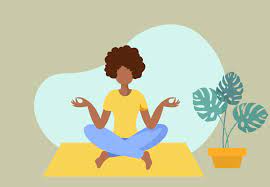Anxiety can be a major issue in relationships. It can cause people to act in ways that they normally would not, and it can also lead to major conflict. If you are struggling with anxiety in your relationship, know that you are not alone. There are many couples who deal with this issue every day. In this blog post, we will discuss some tips for dealing with anxiety in relationships. We hope that these tips will help you and your partner live a happier life together!
Contents
How Does Anxiety In Relationship Look Like?
 Anxiety in a relationship is described as a feeling of unease, worry, or fear about something that is happening in a relationship. When anxiety is present, it can be difficult to manage day-to-day tasks and responsibilities. It may feel like everything outside of the relationship is more important than the relationship itself.
Anxiety in a relationship is described as a feeling of unease, worry, or fear about something that is happening in a relationship. When anxiety is present, it can be difficult to manage day-to-day tasks and responsibilities. It may feel like everything outside of the relationship is more important than the relationship itself.
Anxiety itself manifests differently for everyone, but there are some common signs to look out for:
- Constantly needing reassurance from your partner
- Avoiding conversations or conflict altogether
- Feeling like you’re never good enough
- Worrying about what could go wrong all the time
- Being highly critical of yourself and your partner
- Having difficulty relaxing or enjoying time together
Anxiety can also show up in other ways, such as:
- Sleep problems
- Digestive issues
- Headaches
- Muscle tension
- Exhaustion
- Irritability
So anxiety in a relationship looks like many things. For example, it may look like one person is always needing reassurance while another may avoid conflict altogether. Overall, this makes it difficult to manage day-to-day tasks and responsibilities.
It’s important to remember that everyone experiences anxiety differently, so don’t be afraid to ask your partner how they’re feeling and what you can do to help. This might be a difficult conversation to have, but it’s an important one.
What Causes Anxiety In Relationships?
There are a number of things that can cause anxiety in relationships. Some common causes include:
Fear of abandonment or rejection
This is a common cause of anxiety in relationships. It can stem from past experiences of being rejected or abandoned, or it can be a result of feeling like you are not good enough for your partner. The reason behind this fear could be something that you are not even aware of. Or you may have a history of relationships where you were rejected or abandoned, which has led to this fear.
Uncertainty about the future
Another common cause of anxiety in relationships is uncertainty about the future. This can manifest itself in many different ways, such as worrying about what will happen if you get married, have children, or move in together. It can also be worrying about whether your relationship will last, and what will happen if it doesn’t.
Insecurity in the relationship
It is also believed to cause anxiety in relationships. Insecurity is often the result of feeling not good enough or feeling inferior. When we feel insecure, we tend to doubt ourselves and our abilities. We might worry that our partner will find someone else who is better than us or that they will leave us. These fears can lead to us feeling anxious and stressed.
Communication problems
 Communication problems are the number one trigger of anxiety in any relationship. When we feel like we’re not being heard, or our partner isn’t really understanding us, it can be incredibly frustrating. This can often lead to a feeling of being trapped, or like we’re not able to express ourselves. When you lack this and are unable to convey your message to your partner, anxiety can start to take over.
Communication problems are the number one trigger of anxiety in any relationship. When we feel like we’re not being heard, or our partner isn’t really understanding us, it can be incredibly frustrating. This can often lead to a feeling of being trapped, or like we’re not able to express ourselves. When you lack this and are unable to convey your message to your partner, anxiety can start to take over.
Financial stressors
Sometimes people in relationships can struggle with anxiety because of financial stressors. If one partner is constantly worried about money, it can put a lot of strain on the relationship. For example, if one partner is always worried about bills and the other isn’t, it can create tension. And like this, there can be various financial stressors in a relationship which can add to anxiety.
Unresolved issues from past relationships
This is one of the most common causes of anxiety in relationships. If you carry unhealthy baggage from a previous relationship into your current one, it can cause a lot of tension and stress. This is why it’s so important to work through any issues you may have before getting into a new relationship.
Outside factors
There are also some outside factors that cause anxiety in a relationship. These include:
- Work stress
- Health issues
- Family drama
- Substance abuse
- Other mental health conditions
All of these things can take a toll on your relationship and cause anxiety. In fact, studies have found that anxiety in a relationship is often caused by one or both partners having an anxiety disorder. Because when one person is anxious, it can often make the other person feel anxious as well.
Is It Normal To Be Anxious In A Relationship?
 This seems like a silly question, but it’s one that people ask a lot. The simple answer is yes, it is normal to feel anxious in a relationship. It’s also normal to feel anxious about other things, like your job or your health. The key is to manage your anxiety so that it doesn’t take over your life.
This seems like a silly question, but it’s one that people ask a lot. The simple answer is yes, it is normal to feel anxious in a relationship. It’s also normal to feel anxious about other things, like your job or your health. The key is to manage your anxiety so that it doesn’t take over your life.
There are a few different types of anxiety that can show up in relationships. One is relationship anxiety, which is when you worry about the state of your relationship or whether your partner is going to leave you. This can be triggered by things like seeing your partner talk to someone else or feeling like you’re not good enough for them.
Another type of anxiety is social anxiety, which is when you worry about being around other people. This can show up as feeling shy or nervous in social situations, or even feeling like you’re not good enough for other people.
Finally, there’s generalized anxiety, which is when you worry about a lot of different things all the time. This can make it hard to focus on anything else and can lead to feeling overwhelmed or stressed out all the time.
So overall, a little bit of anxiety is normal in any relationship. Because that’s the thing about anxiety – it’s always there, lurking in the background, ready to jump out at you when you least expect it. The key is to learn how to manage it so that it doesn’t take over your life. With the right tools, you can learn how to control your anxiety and live a happy, healthy life.
How Does Anxiety In Relationships Impact Life?
When you think of anxiety, you might think of someone who is always on edge, worried about everything and anything. While this can be true for some people with anxiety, it is not always the case. Anxiety can present itself in many different ways and it can vary from person to person.
It is important to remember that just because someone does not look like they have anxiety, does not mean that they don’t. Anxiety is often invisible to others but it can have a huge impact on someone’s life. Some of the common consequences of anxiety in a relationship are:
Disconnected from your partner
This is one of the most common effects of anxiety in a relationship. When you’re constantly worried about something, it’s hard to be present with your partner. You might find yourself always on edge, waiting for the other shoe to drop. This can lead to feeling disconnected and distant from your partner.
Arguments and conflict
Anxiety can also lead to arguments and conflict in a relationship. When you’re anxious, you might be more likely to misinterpret things that your partner says or does. This can lead to unnecessary arguments and conflict. Also, it may be hard to communicate your needs when you’re feeling anxious, which can also lead to conflict.
Feeling overwhelmed
 Feelings of overwhelm are often accompanied by physical symptoms such as a racing heart, sweating, and feeling dizzy. This can happen when we feel like we are in danger or are about to be in danger. The body’s natural reaction is to go into “fight or flight” mode which causes these physical symptoms. And anxiety in a relationship impacts both partners, not just one.
Feelings of overwhelm are often accompanied by physical symptoms such as a racing heart, sweating, and feeling dizzy. This can happen when we feel like we are in danger or are about to be in danger. The body’s natural reaction is to go into “fight or flight” mode which causes these physical symptoms. And anxiety in a relationship impacts both partners, not just one.
Avoidant behavior
People with anxiety in relationships often engage in avoidant behaviors. This may manifest as ghosting, passive-aggressiveness, or stonewalling. These behaviors are often a result of feeling overwhelmed or misunderstood. Your anxiety makes you avoidant and your partner feels shut out. It can be very difficult to manage.
Social isolation
When you are so anxious in your relationship that you tend to avoid social activities and isolate yourself, it can be difficult for your partner to understand what is going on. For example, if you used to go out with friends on a regular basis but now avoid doing so, your partner may think that you no longer enjoy their company. It is important to communicate with your partner about your anxiety and let them know that it has nothing to do with them.
Physical complications
There are also some physical complications that can come along with anxiety in relationships. For example, people who suffer from anxiety may have a hard time sleeping, which can lead to fatigue and irritability. They may also have trouble concentrating, which can make it difficult to communicate effectively or resolve conflict. Additionally, people with anxiety may experience physical symptoms such as:
- chest pain
- heart palpitations
- shortness of breath
- dizziness
- sweating
- nausea
All of these physical symptoms can make it difficult to maintain a healthy relationship. If you or your partner are struggling with anxiety, it is important to seek help from a mental health professional. Overall, these are just some of the ways that anxiety in relationships can further impact your relationship. If you or your partner are struggling with anxiety, please remember that you are not alone and there is help available.
How To Deal With Anxiety In Relationships?
 This is the essential part that most people with anxiety forget. It is not about your partner and how they should change to make things easier for you. It is about you and how you can learn to cope with your anxiety in a healthy way that will not ruin your relationship. Here are some tips:
This is the essential part that most people with anxiety forget. It is not about your partner and how they should change to make things easier for you. It is about you and how you can learn to cope with your anxiety in a healthy way that will not ruin your relationship. Here are some tips:
Talk to your partner
When you are suffering from anxiety, the first step is to talk to your partner about it. This can be a difficult conversation, but it is important to communicate with your partner what you are going through. They need to understand what they can do to help you and how your anxiety affects the relationship. When you share your thoughts and talk openly about your anxiety, it can help to reduce the tension and stress in the relationship.
Identify your triggers
Anxiety can be triggered by many different things, so it is important to identify what your triggers are. Once you know what causes your anxiety, you can start to avoid those triggers or learn how to deal with them in a healthy way. For example, if you are anxious about your partner leaving you, try to talk to them about it and work out a plan that will help you feel more secure in the relationship.
Learn how to relax
Anxiety can be very overwhelming, so it is important to learn how to relax. There are many different ways to relax, so find what works best for you. Some people find that relaxation techniques, such as yoga or meditation, can help to reduce their anxiety. Others find that listening to calming music or spending time in nature helps them to relax. So the main goal should be to focus on finding what works for you.
Manage your stress
 Stress is a major trigger for anxiety, so it is important to learn how to manage your stress levels. This may involve making lifestyle changes, such as exercising more or eating a healthy diet. It may also involve learning how to better manage your time and taking steps to reduce the amount of stress in your life. Also, managing stress might include:
Stress is a major trigger for anxiety, so it is important to learn how to manage your stress levels. This may involve making lifestyle changes, such as exercising more or eating a healthy diet. It may also involve learning how to better manage your time and taking steps to reduce the amount of stress in your life. Also, managing stress might include:
- spending time outdoors
- practicing meditation
- deep breathing exercises
- eating healthily
- getting enough sleep
Try couple counseling
It is not uncommon for anxiety to put a strain on relationships. If you are struggling to cope with your anxiety, it may be helpful to seek help from a therapist or counselor. Couple counseling can help to improve communication and reduce the stress in your relationship. It can also provide you with tools and strategies for dealing with anxiety. Couple counseling is not a sign of weakness, it is a sign of strength. It takes a lot of courage to seek help and to face your anxiety head-on.
Join a support group
Support groups are a great way to meet other people who are dealing with anxiety. This can be a helpful way to share information and learn from others who are going through the same thing. It can also provide you with a sense of community and support. This aims to help you cope better with your anxiety.
Anxiety in relationships is not uncommon, but it can be difficult to deal with. If you are struggling with anxiety, it is important to talk to your partner about it and seek help from a therapist or counselor. There are also many helpful resources available and you just need to find what works best for you. With the right support, you can learn to manage your anxiety and have a healthy and happy relationship.
Conclusion
To conclude anxiety in relationships is very common. It can manifest itself in many ways and often goes undiagnosed. Because people assume it’s just part of being in a relationship. But it is not and if you continue to ignore or avoid it, it will only get worse. The tips above are just a few things you and your partner can do to start managing anxiety in your relationship.
If you find that these don’t work or if the anxiety is proving to be too much, please reach out to a therapist or counselor who can help you further. Also, if you or your partner are struggling with any other mental health issues, please seek professional help. Mental health is just as important as physical health and often gets neglected.
For more information and tips you can contact Therapy Mantra. We have a team of professional therapists who can provide you with the support and guidance you need to recover from this condition. Contact us today to learn more about our services. You can also book an online therapy session or download our free Android or iOS app.


